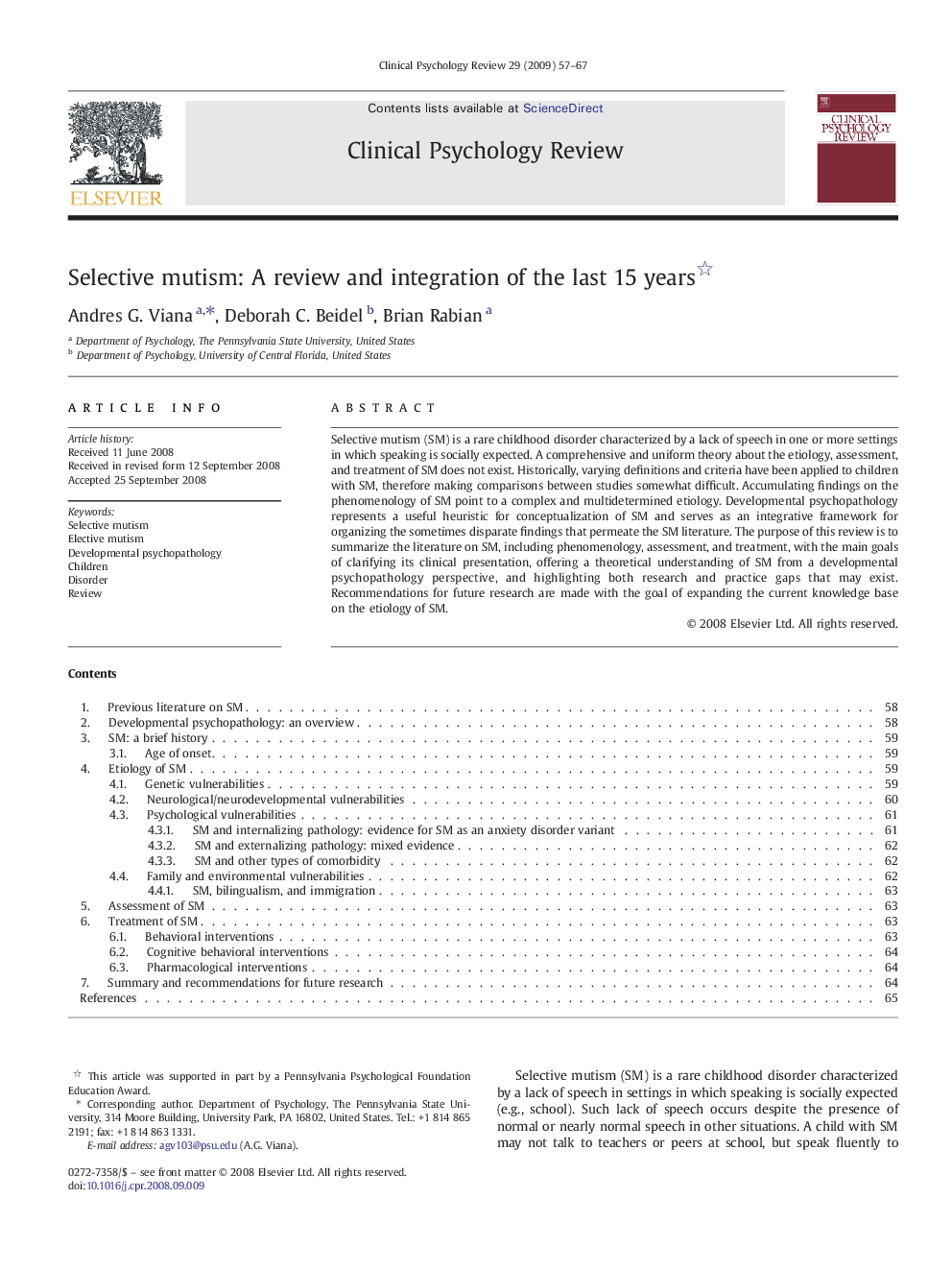| Article ID | Journal | Published Year | Pages | File Type |
|---|---|---|---|---|
| 903991 | Clinical Psychology Review | 2009 | 11 Pages |
Selective mutism (SM) is a rare childhood disorder characterized by a lack of speech in one or more settings in which speaking is socially expected. A comprehensive and uniform theory about the etiology, assessment, and treatment of SM does not exist. Historically, varying definitions and criteria have been applied to children with SM, therefore making comparisons between studies somewhat difficult. Accumulating findings on the phenomenology of SM point to a complex and multidetermined etiology. Developmental psychopathology represents a useful heuristic for conceptualization of SM and serves as an integrative framework for organizing the sometimes disparate findings that permeate the SM literature. The purpose of this review is to summarize the literature on SM, including phenomenology, assessment, and treatment, with the main goals of clarifying its clinical presentation, offering a theoretical understanding of SM from a developmental psychopathology perspective, and highlighting both research and practice gaps that may exist. Recommendations for future research are made with the goal of expanding the current knowledge base on the etiology of SM.
